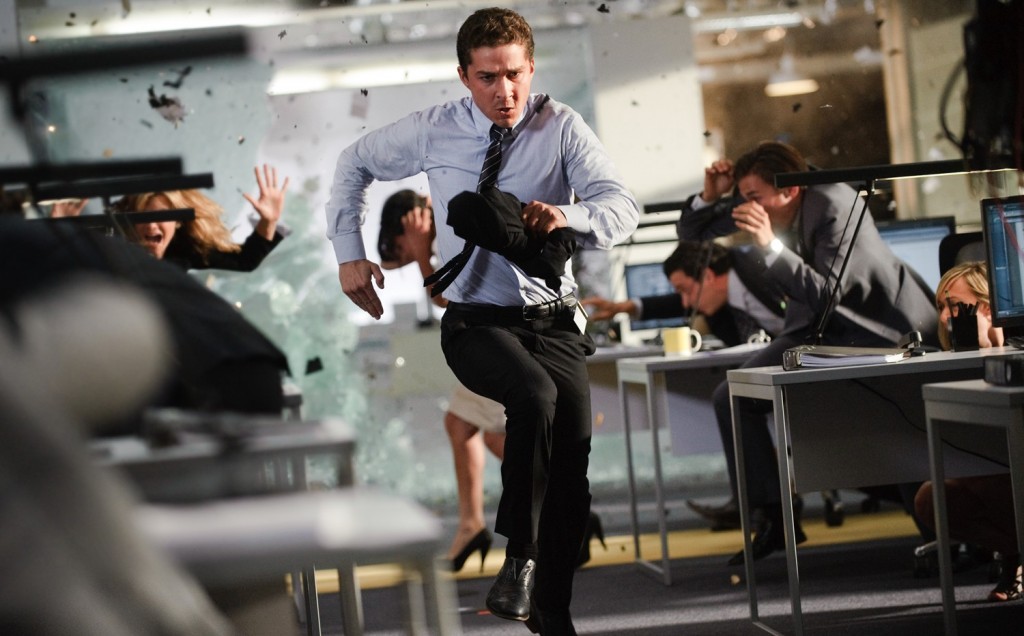Culture
“Transformers 3” no fun, all grave

Transformers: Dark of the Moon
dir. Michael Bay
Release Date: Jun 29, 11
- 1
- 2
- 3
- 4
- 5
- 6
- 7
- 8
- 9
- 10
Transformers: Revenge of the Fallen was not the death of cinema as we knew it. Despite the reviews at the time (such as Roger Ebert’s later-redacted declaration that anyone who could enjoy it was not sufficiently evolved), it was a sprawling mess of what a Transformers movie should be; though deeply and in some ways irreparably flawed, there was a gleeful, anarchic energy to it, a fling-all-the-shit-at-the-wall ethic that made the leaden plotting and grand incoherence palatable. The biggest problem with Transformers: Dark of the Moon, the third installment in the money-printing franchise, is that the wild fun of the first two installments is replaced with the only thing that could truly prove ruinous for a movie about giant fighting robots: a streak of solemn, self-serious gravity.
It’s not just the gravity, though, because by the time that shows up about an hour and a half in, it’s a welcome departure from the hackneyed, nigh unbearable comedy that precedes it. Sam Witwicky (Shia LaBeouf), after being rewarded with presidential honors for his role in stopping the second film’s destruction of Earth, has graduated from an Ivy League school only to struggle with finding a job. (Topical!) This is compounded by pressures from his mother and father, who haven’t yet figured out that their son is a magnet for destruction, and the need to impress his new girlfriend Carly (Rosie Huntington-Whiteley) with stability before she’s stolen away by her slimy boss (Patrick Dempsey, looking as lost as a man ever has). There’s also an amusing prologue that explains that the 21 lost minutes of Neil Armstrong’s first moon walk were deliberately lost, in order to cover up the crash-landing of Sentinel Prime (Optimus’ mentor and predecessor). The governmental goings-on, as have always been with the case of these movies, are Byzantine, but the essential fact is that humans are now a specific target for the Decepticons, who intend to tractor-beam their home planet onto Earth.
As plot coherence goes, you’ll soon long for the alarming speeds of TF2 when you sit through nearly an hour of LaBoeuf mugging his way through a series of cameos by talented actors who wanted the kind of easy money that only a Michael Bay performance can ensure. (His performances are getting progressively worse as the series goes on; one can only hope he can’t sink lower than he does here.) Bay depends far too heavily on the assumption that by a third installment we care about these characters, because though the first film did a good job of providing them with just enough development to be worth cheering for, by now the few who’ve stuck around are caricatures.
The one necessity as far as the human element in any big-budget disaster movie is at least a modicum of concern for anybody that’s not a robot onscreen, something that Bay and writer Ehren Kruger don’t seem bothered to muster. It doesn’t help that other than amusing character turns by Ken Jeong and Alan Tudyk, nobody in this film is all that interesting; Huntington-Whiteley pouts and simpers, with lips that perpetutally resemble a preening Steven Tyler, but lacks the raw sex appeal and charisma that made Megan Fox a star. Yes, that’s a genuine lament for the lack of Megan Fox in a movie.
The real stars are the robots, though. We know this. Yet, in a movie designed to string together minimal plot in order to move with maximum efficiency between action setpieces, most of those don’t live up to expectation. Compared to the jaw-dropping formation of Devastator, or the sun-scorched urban destruction at the first film’s end, a good chunk of the big moments here don’t land, mostly because they’re uncharacteristically unpleasant. It’s a mystery when the robots started bleeding, but they do, and watching Optimus Prime rip out the throats of other bots like John Rambo while talking about the power of humanity creates some squirmy undertones that the film’s overarching “America, fuck yeah!” aesthetic don’t really help. Above all, Transformers is supposed to be fun, but it’s considerably less so when Bay is staging violent warzones for social allegory.
From the onerous overhead narration about the power of courage even when one’s allies become enemies, to the disconcerting shots of soot-covered masses running from exploding buildings, Dark of the Moon wants to send a message, and carry itself with more weight than past installments, which is almost suicidal for a series that has always carried itself as an escapist entertainment. Many of the first two films’ defenders have said that these are movies they would’ve loved as children (an argument I wholly agree with), but I can’t see a little boy watching Dark of the Moon, where Autobots start getting lined up and shot execution-style at one point, and being anything other than saddened.
Pingback: “Transformers 3″ no fun, all grave – HEAVEmedia | Movie()
Pingback: Cinema review: Transformers: Dark of the Moon – The National | Movie()
Pingback: Confused views: Preparing for Transformers: Dark Of The Moon – Den Of Geek | Movie()